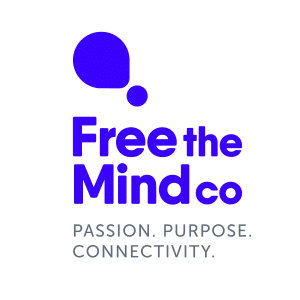In an era profoundly shaped by advancements in artificial intelligence (AI), the emphasis on human qualities has never been more critical. As AI technologies assume roles ranging from mundane tasks to complex decision-making, the distinctly human attributes — empathy, adaptability, and ethical judgment — emerge as invaluable assets. This article explores the multifaceted reasons why developing these qualities is essential in harmonizing the growth of AI with human values and societal needs.
AI’s limitations in mimicking the full spectrum of human emotional intelligence underscore the importance of inherently human qualities (Kasparov, 2017). In many ways the depth of human experience and the ability to connect on an emotional level remain unparalleled and irreplaceable. As roles AI can seamlessly replace and grow, the more essential it becomes to bolster human centric abilities. Empathy, adaptability, resilience and ethical judgement are among many skills that take attention to be developed and there is a strong case that the earlier on in life we start working on these skills the better we can be at them.
The dynamic nature of technological advancement, driven by AI, calls for an equally dynamic human response: the capacity for lifelong learning and adaptability (Schwab, 2016). As the landscape of work and life evolves, these qualities enable individuals to navigate change, fostering both personal growth and societal resilience.
There is an unmatched value in human relationships and despite AI’s advancements, the depth and nuance of human relationships, powered by empathy and emotional intelligence and regulation, remain beyond its reach (Riess, 2017) and may be for the foreseeable future. These qualities are foundational to professions and interactions where trust, understanding, and genuine connection are paramount.
In facing the uncertainties brought about by rapid technological changes, human resilience and emotional strength stand out as critical qualities for navigating challenges (Southwick & Charney, 2012). These attributes empower individuals to face adversity with courage and perseverance, contributing to personal well-being and community strength. Resilience is another skill that can be developed and taught at a young age.
The complex ethical landscapes and transformative potentials of AI technologies call for visionary leadership imbued with human wisdom, foresight, and integrity (George, 2007). Effective leaders harness these qualities to inspire trust, guide innovation, and ensure that technological advancements serve the greater good.
As AI becomes more integrated into our lives, the imperative for a strong ethical framework, grounded in human values, becomes apparent (Wallach & Allen, 2009). The responsibility to guide AI’s development and application in ways that uphold human dignity and societal well-being rests on our ability to apply ethical reasoning and moral judgment.
AI and the Skills Landscape
Understanding the impact of AI on skills, particularly from a workforce perspective, is critical. LinkedIn’s taxonomy of approximately 38,000 skills reveals that AI and GAI technologies could replicate over 500 skills, including areas such as communication and media (e.g., writing, editing, video), business and industry (e.g., financial reporting, data analysis), engineering (e.g., programming, data science), and time management. Conversely, 800+ skills are identified as GAI-complementary, which are currently exclusive to humans, underscoring the value of human interaction and innovative capabilities. These skills include oral presentations, influencing, entrepreneurship, maintenance and repair, military strategy, software and product innovation, and essential people skills like leadership, teamwork, negotiation, and emotional intelligence (Kimbrough& Carpanelli 2023). This dynamic framework expects shifts over time, aligned with advances in AI and changes in job roles and skills beyond AI’s current capabilities, indicating a continually evolving interplay between human skills and technological advancements.
As we chart our course through the AI-driven landscape of the future, the cultivation of human qualities emerges as a beacon guiding our way. By nurturing these attributes, we ensure a future where technology amplifies human potential, enriches our lives, and aligns with our deepest values and aspirations.
References
George, B. (2007). True north: Discover your authentic leadership. Jossey-Bass.
Kimbrough , K., & Carpanelli , M. (2023, September 23). Preparing the Workforce for Generative AI, Insights and Implications https://economicgraph.linkedin.com/content/dam/me/economicgraph/en-us/PDF/preparing-the-workforce-for-generative-ai.pdf
Kasparov, G. (2017). Deep thinking: Where machine intelligence ends and human creativity begins. PublicAffairs.
Riess, H. (2017). The science of empathy. Journal of Patient Experience, 4(2), 74-77.
Schwab, K. (2016). The fourth industrial revolution. World Economic Forum.
Southwick, S. M., & Charney, D. S. (2012). Resilience: The science of mastering life’s greatest challenges. Cambridge University Press.
Wallach, W., & Allen, C. (2009). Moral machines: Teaching robots right from wrong. Oxford University Press.







